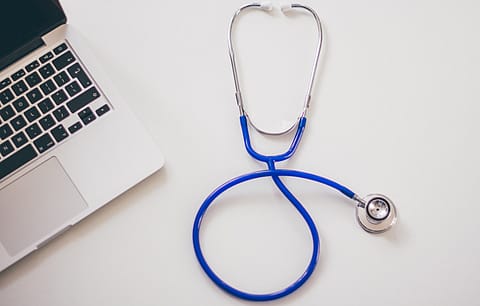How AI is bringing first-world healthcare to India's forgotten villages
AI is transforming rural healthcare in India—from diabetic screenings in tribal villages to preventing childhood blindness. The future of medicine is already here.

India’s artificial intelligence (AI) market is on a meteoric rise—projected to reach $17 billion by 2027, growing at a CAGR of 25–30%. While sectors like finance and retail are actively leveraging AI, it is in healthcare that the technology is poised to have the most profound, life-altering impact. Unlike other industries, healthcare doesn't just benefit from better efficiency or automation—it saves lives.
The promise of artificial intelligence in healthcare isn’t about replacing clinicians—it’s about amplifying reach, especially in a country like India where vast populations remain underserved. At Remidio, our work over the past decade has been driven by a single belief: that high-quality care should be available, accessible, and affordable—not just in metropolitan hospitals but at the very last mile.
This philosophy led us to develop the world’s first 3-in-1 offline AI platform for diabetic retinopathy, glaucoma, and age-related macular degeneration, seamlessly integrated into our smartphone-based retinal imaging devices that are portable, battery operated and do not require dilation. These AI models are designed to operate without internet connectivity, enabling health workers to deliver real-time, actionable results in resource-constrained settings—from mobile vans in rural Northeast to PHCs in Kerala.
What gives us confidence in this approach is the rigorous clinical validation behind our technology that addresses pressing public health problems. All Remidio’s AI algorithms have undergone prospective clinical trials at globally renowned academic institutions. Our diabetic retinopathy AI, for instance, has been validated across over hundred thousand patients, with results published in peer-reviewed international journals. We take pride in ensuring that our AI is not only explainable and transparent but also meets the highest standards of safety, sensitivity, and specificity, making it suitable for deployment even in the most critical screening programs.
Reimagining Access at the Edge of the System
India’s healthcare system continues to grapple with the dual burden of non-communicable diseases (NCDs) and lack of access to early diagnostics. The burden of non-communicable diseases (NCDs) like diabetes, cardiovascular disease, and chronic kidney disease continues to rise, with 65% of all deaths in India now attributed to NCDs. Yet, the early warning signs—blurred vision, high blood pressure, asymptomatic damage—go unnoticed until it’s too late. Our AI solutions address this gap head-on, enabling early detection and triaging, even in places where no specialist is available.
By decentralizing diagnostics through portable, offline-enabled tools, we’re empowering frontline workers to screen patients efficiently and refer them at the right time—turning a missed opportunity into a timely intervention.
The Retina as a Gateway to Systemic Health
One of the most exciting clinical frontiers we’re exploring is the retina as a biomarker for systemic disease. Our research team is working on developing AI models that not only screen for eye conditions like diabetic retinopathy, glaucoma, and AMD, but also flag signs of cardiovascular risk, and chronic kidney disease. Our vision is to develop a model of a five-minute retinal scan, using which a health worker can detect the earliest signs of diseases that were once only diagnosable in advanced hospital settings.
Recommended Stories
In doing so, we intend to shift the paradigm—from disease management to predictive, preventive care. This is not just about preserving vision—it’s about safeguarding long-term health.
Remidio’s 3-in-1 AI in Kerala’s Nayanamritham 2.0 Program
A major milestone in our journey has been our collaboration with the Government of Kerala on Nayanamritham 2.0, the world’s first government-led AI-assisted chronic eye disease screening program. This initiative, launched in February 2025, integrates Remidio’s 3-in-1 AI into the state’s public health system, enabling real-time screening for diabetic retinopathy, glaucoma, and age-related macular degeneration.
By equipping optometrists and frontline health workers with our AI-powered fundus cameras, the program ensures faster diagnoses and timely referrals—bringing high-quality eye care to community health centers, taluk hospitals, and district hospitals across Kerala. This partnership is a testament to how AI can be seamlessly embedded into public health workflows, setting a global precedent for scalable, cost-effective eye care.
Integration, Not Just Innovation
Technology must work with the healthcare system, not around it. That’s why we work closely with governments, NGOs, and healthcare providers to ensure our solutions are ethically deployed, context-aware, and interoperable with national platforms like the Ayushman Bharat Digital Mission (ABDM). We invest in training, long-term support, and evidence-based deployments—because we know that true change doesn’t come from pilots, but from sustained, embedded adoption.
(INR CR)
To make AI a routine part of preventive care, we also need better reimbursement models, subsidised access to diagnostics, and strong regulatory frameworks. We're actively contributing to these conversations with NITI Aayog and NHA, ensuring that innovation translates into real impact.
The Real Revolution is in Rural India
The real magic of AI in healthcare happens far from urban hospitals. It happens when a child in a government school gets their eyes screened and a vision problem is caught before it hinders their education. It happens when a woman in a tribal village is flagged for diabetic retinopathy, referred early, and doesn’t go blind.
This is why we built Remidio—to create tools that don’t just diagnose but democratize healthcare. AI is not the future of medicine—it is the present, and it belongs at the frontlines. If deployed thoughtfully and responsibly, it can transform not just how we deliver care—but who gets to receive it.
Views are personal. The author is CEO & Founder, Remidio